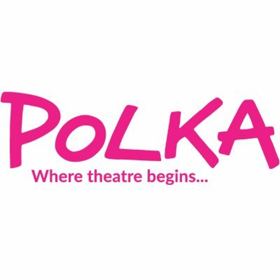Polka Theatre Announces Arts Council Stage Two Approval For 2.5M Grant Towards Theatre Redevelopment

Polka Theatre today announces that its Stage Two application to the Arts Council for £2.5 million towards its much-needed theatre redevelopment has been successful. This marks the first capital development since it opened the doors to its ground-breaking children's theatre venue in 1979. The work on the building is planned to begin in February 2019 with a temporary closure of the building while the work takes place.
This is a ringing endorsement of Future Polka, the theatre's initiative for reimagining and developing Polka for future generations and as a vibrant hub for the local community. The main aim of the plans is to redevelop the UK's only theatre venue still exclusively for children, from babies up to 12-year olds, and for Polka to continue to set the benchmark for what such a venue could or should be.
The Future Polka project will cost £6.5 million. Thanks to support from the Arts Council and major trusts and donors, over 60% of the total budget is now in place. Polka is on track to achieve 90% of its £4 million match funding target by December 2018.
Polka Theatre's Artistic Director and Chief Executive, Peter Glanville said today 'Since the theatre opened nearly 40 years ago, Polka has been at the forefront of providing wide-reaching and imaginative children's theatre and a dedicated venue for young audiences. We're thrilled to have secured further funding towards our capital redevelopment and we hope that some of Polka's many past and current visitors will also pledge their support, so we can undertake much-needed improvements to our premises and continue to offer a unique theatre environment where children can play, discover and create and let their imaginations run wild.
Tarek Iskander, Director, Theatre, Arts Council England said of the announcement 'Polka Theatre is an established leader in the provision of work for children up to twelve years old and proposed capital plans will see them become a National Centre for Early Years' Theatre in response to an increasing demand for this genre of work. We also welcome their plans for new rehearsal and development studios. These will facilitate Polka's professional development programme for theatre makers who want to make a career in this sector and address the need for more inclusive and diverse children's theatre. This should provide, in time, far more opportunities for very young audiences and their families to engage with high quality creative work and participatory activities and for the newly trained theatre makers to take their skills to venues throughout Britain and abroad.'
This is a pivotal moment for Polka and children's theatre as an art form in the UK. Future Polka represents an exciting, chance-of-a-lifetime opportunity to ensure the survival of a pioneering, world-class theatre for children and much-loved centre for its local community.
For further information on Future Polka, please see: www.polkatheatre.com/futurepolka
Future Polka theatre redevelopment - key points include:
- New Adventure Theatre - the UK's first purpose-built 'Early Years' theatre big enough to accommodate increased demand for shows for under 6s
- Rehearsal and R&D studio - Polka's first onsite rehearsal studio, supporting its PolkaLAB professional development programme
- Creative Learning Studio - an expanded programme of play-based learning and theatre will be possible in our new centralised learning space, which will have direct access to a new multisensory garden and redeveloped indoor play area
- New bathroom and baby change facilities and designated buggy park
- Improved access throughout enabling greater participation by actors and children with mobility impairments
- An expanded destination café and redesigned outdoor playground
Operating for almost 40 years, Polka is a leading, critically acclaimed theatre for children and the only venue still dedicated to children from babies up to 12-year olds. Over 90,000 children, along with their families and teachers, from across London and the South East visit each year to see inspiring, new theatre involving performance artists, opera, dance, digital theatre and puppetry as well as interactive storytelling and creative learning workshops.
Although firmly rooted in the local community, Polka is a National Theatre Company with productions travelling across the UK and overseas to cities as far apart as Toronto, Istanbul, Dubai, Sydney and Hong Kong. Polka an Arts Council National Portfolio Organisation member and UK Lead Partner of the EU Small size network for Early Years theatre.
As a pioneer, Polka works with the very best of British talent on co-productions with other leading theatre companies and arts organisations such as the Royal Opera House, V&A, Natural History Museum, Tate Gallery and the BBC. Polka has also led the way in the development of theatre for early years' audiences and in initiatives to make live theatre accessible to children with additional needs and those from disadvantaged backgrounds.
Comments
Videos

